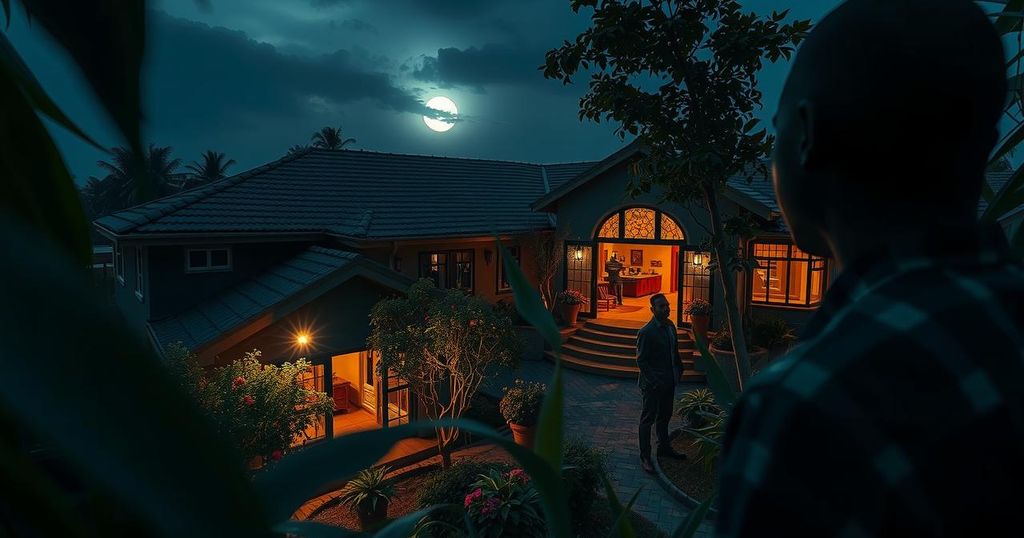South Sudan security forces are investigating a shootout at the home of former spy chief Akol Koor, who was dismissed amid coup rumors. The incident occurred in Juba, leading to military deployment and claims of misunderstandings among security personnel. Koor remains under house arrest despite speculations of his escape. Tensions reflect broader issues within South Sudan’s political landscape, compounded by postponed elections and ongoing instability.
On Friday, South Sudan’s security forces commenced an investigation into a shootout that occurred at the residence of the former intelligence chief, Akol Koor, who was dismissed nearly two months ago amidst allegations of a coup attempt. Gunfire erupted on Thursday evening in Juba, the capital of South Sudan, which is grappling with internal power struggles, ethnic conflict, and significant economic challenges. The shootout near Koor’s residence lasted for approximately one hour, prompting a heavy military presence in the area the following day, though normal activities resumed in the vicinity shortly thereafter.
Reports from the Sudans Post indicated that following the violence, Koor was arrested after intense skirmishes that reportedly resulted in numerous casualties among his soldiers. However, a spokesperson for the South Sudan People’s Defence Forces, Lul Ruai Koang, refuted the speculation circulating on social media, asserting that Koor remained under house arrest and had not sought refuge at the UN compound. According to Police spokesperson John Kassara, the situation was stable, yet local authorities advised residents to remain cautious.
The United Nations in South Sudan had previously alerted its staff to the incident, linking the gunfire to Koor’s arrest and urging personnel to take cover. Koor, who had previously led the National Security Services since South Sudan’s independence in 2011, was dismissed in October, leading to rampant speculation regarding his potential overthrow of President Salva Kiir. Koang characterized the shootout as a “misunderstanding” between two units of security personnel assigned to protect Koor’s home, claiming that it escalated into gunfire, resulting in injuries to two servicemen before order was restored. This incident follows the government’s recent decision to postpone elections for two years, despite considerable pressure from the international community to advance the nation’s transitional processes, such as unifying military factions and drafting a constitution. South Sudan continues to emerge from a devastating civil war between Kiir’s forces and those loyal to his deputy, Riek Machar, which claimed approximately 400,000 lives and displaced millions, leaving the nation among the poorest and most corrupt globally, plagued by instability and climate challenges.
South Sudan has been embroiled in political turmoil and conflict since its independence from Sudan in 2011. The nation’s political landscape has been marred by infighting, particularly between President Salva Kiir and his deputy Riek Machar, leading to a brutal civil war from 2013 to 2018. The recent events involving Akol Koor, the former spy chief, reflect the ongoing power struggles within South Sudan’s leadership, particularly in the wake of postponed elections and the government’s inability to stabilize the country. The international community remains concerned about the dire conditions that prevail in South Sudan, including rampant corruption and severe economic difficulties, worsened by climate-related disasters.
The investigation into the shootout at Akol Koor’s residence underscores the precariousness of security and political stability in South Sudan. The episode highlights the deep-seated issues within South Sudanese society, characterized by factional conflict and elite power struggles. The emphasis on understanding the tensions between security forces suggests a need for more coherent strategies to ensure internal security. Additionally, the nation’s postponed electoral process raises further concerns regarding its governance and transitional milestones, as South Sudan continues to grapple with the repercussions of its recent history.
Original Source: www.france24.com







